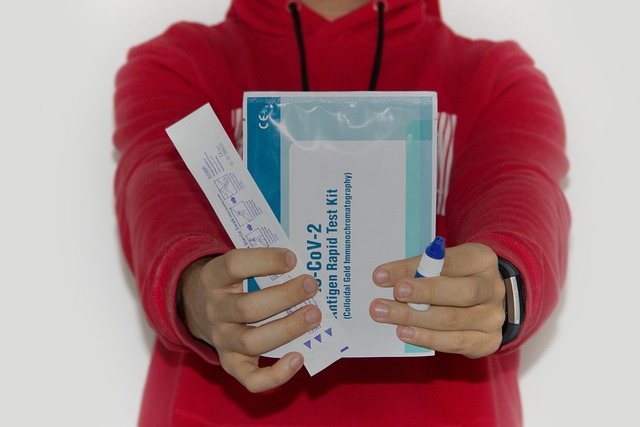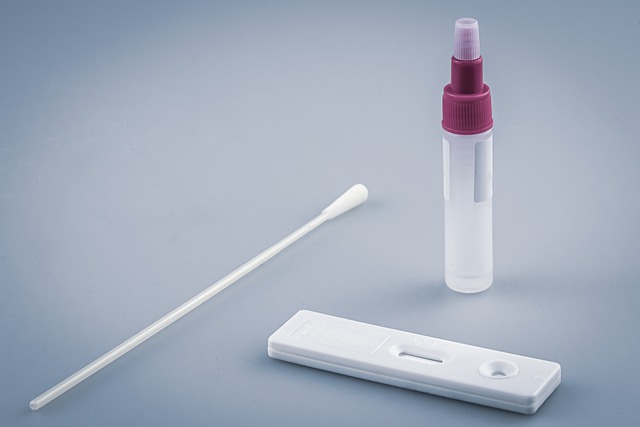
What Is The Shelf Life Of Covid Test Kits? Things You Want To Know
To start with, what is the shelf life of covid test kits?
The FDA typically approves at-home COVID-19 tests with a shelf-life of approximately four to six months from the day the test was manufactured, based on initial study results, and it may be extended later as more data is gathered. This is because stability testing by test manufacturers takes time, and it is not uncommon for the FDA to extend this shelf-life.
Manufacturers of COVID-19 tests conduct studies to demonstrate how long after manufacturing COVID-19 tests continue to perform as accurately as the day the test was manufactured. The shelf-life is how long the test should perform as expected and is measured from the date the test was manufactured. The expiration date listed on the box label for at-home The COVID-19 test is set at the end of the shelf life and is expected to function accurately through this date.
Please continue reading for more information about the shelf life of Covid test kits.
Table of Contents
How To Tell If The Shelf Life Of My Covid Tests Has Been Extended?
The manufacturer may ask the FDA to approve an extended expiration date if it discovers that the shelf life is greater than the anticipated four to six months. The manufacturer might then inform customers of the new expiration dates. You probably won’t get any notifications, though, if you didn’t purchase the tests from the manufacturer.
You can use the search box to locate your test on that page, where the FDA page lists COVID-19 tests alphabetically. The FDA lists each test’s shelf life and whether it has been extended in the table’s far right column. An additional link will give information on the precise expiration dates for particular test lots if the expiration date has been extended.
If the FDA extends the shelf life of any other COVID-19 rapid antigen test, we’ll keep updating this list.
What Do The Expiration Dates For Covid-19 Tests Mean?
Your COVID-19 test box will have an expiration date that is the last day the test is anticipated to function properly. At-home test kits typically have a shelf life of four to six months, but the manufacturer may be able to extend that shelf life if they discover additional evidence that the tests continue to be reliable after their expiration date.
Should I Still Use A Covid Test Kit After It Has Expired?
The FDA does not advise using outdated COVID-19 at-home tests. The COVID-19 test components may deteriorate or break down over time, producing unreliable or invalid test results.
Again, it’s possible that the shelf lives of at-home COVID-19 test kits will be extended as more data is gathered, but for the time being, you shouldn’t use a test that has passed its expiration date. However, if the test kits in your box have passed their expiration date, check this FDA list of extended expiration dates to see if you can still use them (more on this below).

When Do Rapid Covid Tests Expire?
Only a few months to a year can be spent storing rapid antigen test kits.
“The expiration date for home COVID-19 rapid antigen tests can be found on the box, and it’s crucial to double check before starting the test, according to Christopher Scuderi, DO, a family physician at University of Florida Health Jacksonville, who spoke to Verywell. “The stability of COVID-19 rapid antigen test kits or at-home tests is still a subject of ongoing research.”
Generally speaking, different manufacturers’ test kit shelf lives differ. For eight months, the RapCov Rapid COVID-19 Test, for instance, can be kept in storage. The Food and Drug Administration (FDA) reviewed the stability studies for two antigen tests, namely the BinaxNOW COVID-19 Ag Card and the CareStart COVID-19 Antigen Test, and decided to extend their shelf lives to 12 months.
“Tests should be used within the appropriate time frame to ensure test accuracy,” Scuderi said.
How Should Test Kits Be Stored?
The test kit‘s expiration date is not the only element that could compromise its quality. Also important is how you store it.
“According to the instructions on the package, you should store your test, Scuderi advised. “It’s crucial to remember that the test’s accuracy can be impacted by storing it outside of the recommended parameters for storage. Prior to using a specific test, make sure to carefully review the temperature and storage guidelines.”
Rapid antigen tests are not intended to withstand moisture, extremely high humidity levels, or subfreezing temperatures. For instance, you should store the Clip COVID Rapid Antigen Test between 59 and 86 degrees Fahrenheit (15 and 30 degrees Celsius).
It is forbidden to freeze or chill tests. Although the BinaxNOW COVID-19 Ag Card can be stored between 2 and 30 degrees Celsius (3.6 and 35.6 degrees Fahrenheit), the test components must be at room temperature before use.
“The back of a hot car or a car in the winter are not appropriate storage locations for home-use tests, according to Sheldon Campbell, MD, PhD, FCAP, associate director of Yale Medicine’s clinical microbiology lab and professor of laboratory medicine at the Yale School of Medicine. “These kits can be ruined by freezing and thawing as well as extremely high temperatures.”
To ensure that antigen tests function as intended, everyone should generally adhere to the instructions provided in the box regarding storage, expiration, and testing procedures.
“Although these tests appear to be very simple, Campbell explained that they are actually quite intricate little devices that require many moving parts to function properly in order to provide the correct response.
Is It Safe To Use Covid-19 Tests At Home?
A: When people follow the manufacturer’s step-by-step instructions, at-home COVID-19 tests are safe to use and FDA approved. However, misuse of at-home COVID-19 tests can be harmful if the test kit’s components, such as liquid solutions in tiny vials that might contain chemicals like sodium azide, are ingested or if the liquid solutions come into contact with someone’s skin or eyes. In a Safety Communication released on March 18, 2022, the FDA made suggestions to encourage the safe use of at-home COVID-19 tests. These suggestions include keeping all components of at-home COVID-19 tests out of the reach of children and animals both before and after use, as well as strictly adhering to the test’s step-by-step instructions, including the Warning, Precautions, and Safety Information.
Can I Use An Expired FDA-authorized At-home Covid-19 Diagnostic Test?
Contrary to popular belief, the FDA does not advise using COVID-19 at-home diagnostic tests past their legal expiration dates. The COVID-19 tests and the components that make them up may deteriorate or fail over time. As a result, using test kits that have expired may produce unreliable or inaccurate results.
However, as more stability data are gathered, the expiration dates for COVID-19 diagnostic tests performed at home may be extended. If the expiration date for your at-home OTC COVID-19 test has been changed, you can find out how to find the new expiration date by looking at the Expiration Date column of the List of Authorized At-Home OTC COVID-19 Diagnostic Tests.
Expiration Date Of An At-home Covid-19 Diagnostic Test Be Extended?
The test manufacturer can get in touch with the FDA and ask that the FDA approve a longer shelf-life once they have more stability testing results, such as those from 12 or 18 months. The expiration dates will be extended when a longer shelf-life is approved, and the test manufacturer may notify customers of the new authorized expiration dates so they are aware of how long they can use the tests they already own. It’s possible that you won’t get one of these notices if you didn’t buy your COVID-19 at-home diagnostic test straight from the test manufacturer. If the expiration date for your at-home OTC COVID-19 test has been changed, you can find out how to find the new expiration date by looking at the Expiration Date column of the List of Authorized At-Home OTC COVID-19 Diagnostic Tests.
Conclusion
The post covered the topic of COVID test kit shelf life.
Accelerated testing, which involves storing a test for a shorter period of time at a higher temperature before evaluating its accuracy, can sometimes offer a quicker way to estimate the stability of a test’s performance over time. Accelerated testing, especially for longer time periods, does not offer the same level of assurance as real-time data because it can only estimate the test stability. Experience with tests and stability testing has shown that accelerated testing typically offers enough assurance to mark tests as having a shelf life of up to six months.
I’m grateful you read.

